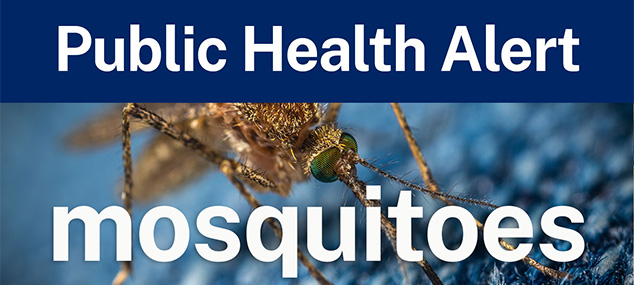
The North Coast community and visitors to the region are being urged to take precautions to prevent mosquito bites after recent detections of mosquito borne viruses during surveillance.
North Coast Public Health Unit Associate Director Robin Auld said the detections, combined with an expected seasonal increase in mosquito numbers, have increased the community’s risk of contracting mosquito-borne diseases.
“Mosquitoes in the NSW North Coast can carry viruses which can lead to debilitating illness in humans, such as Ross River and Barmah Forest,” Mr Auld said.
“Mosquitoes thrive in wet, warm conditions like much of the North Coast is currently experiencing.
“The trapping program has detected Ross River virus in Ballina and Byron Bay local government areas. The best way to avoid these mosquito-borne diseases is to avoid getting bitten by mosquitoes.
“While we are not seeing large numbers of notifications for illnesses just yet, we expect this to rise over the coming weeks as the mosquito numbers increase over the annual peak season.”
Ross River and Barmah Forest viruses may cause unpleasant symptoms ranging from tiredness, rash, headache, and sore and swollen joints that can last several weeks.
More serious disease can be found in NSW, particularly west of the ranges, such as Murray Valley Encephalitis, Kunjin and Japanese Encephalitis, so wherever you are, its wise to protect yourself from mosquitoes.
People are encouraged to take actions to prevent mosquito bites:
- Apply repellent to exposed skin. Use repellents that contain DEET, picaridin, or oil of lemon eucalyptus. Check the label for reapplication times.
- Re-apply repellent regularly, particularly after swimming. Be sure to apply sunscreen first and then apply repellent.
- Wear light, loose-fitting long-sleeve shirts, long pants and covered footwear and socks.
- Avoid going outdoors during peak mosquito times, especially at dawn and dusk.
- Use insecticide sprays, vapour dispensing units, and mosquito coils to repel mosquitoes (mosquito coils should only be used outdoors in well-ventilated areas).
- Cover windows and doors with insect screens and checking there are no gaps.
- Remove items that may collect water such as old tyres and empty pots from around your home to reduce the places where mosquitoes can breed.
- Use repellents that are safe for children. Most skin repellents are safe for use on children aged three months and older. Always check the label for instructions and safety precautions.
- Protect infants aged less than three months by using an infant carrier draped with mosquito netting, secured along the edges.
While camping, use a tent that has fly screens to prevent mosquitoes entering or sleep under a mosquito net. For more information, visit the NSW Health website.